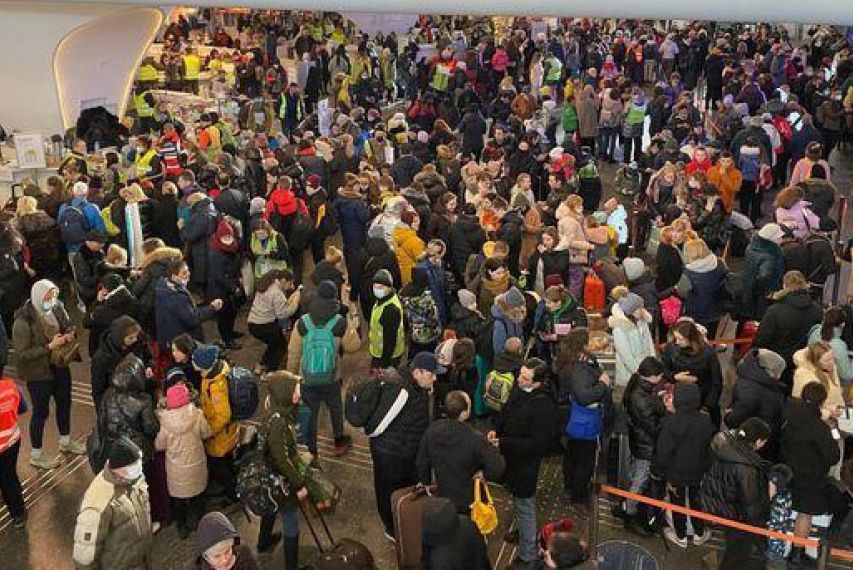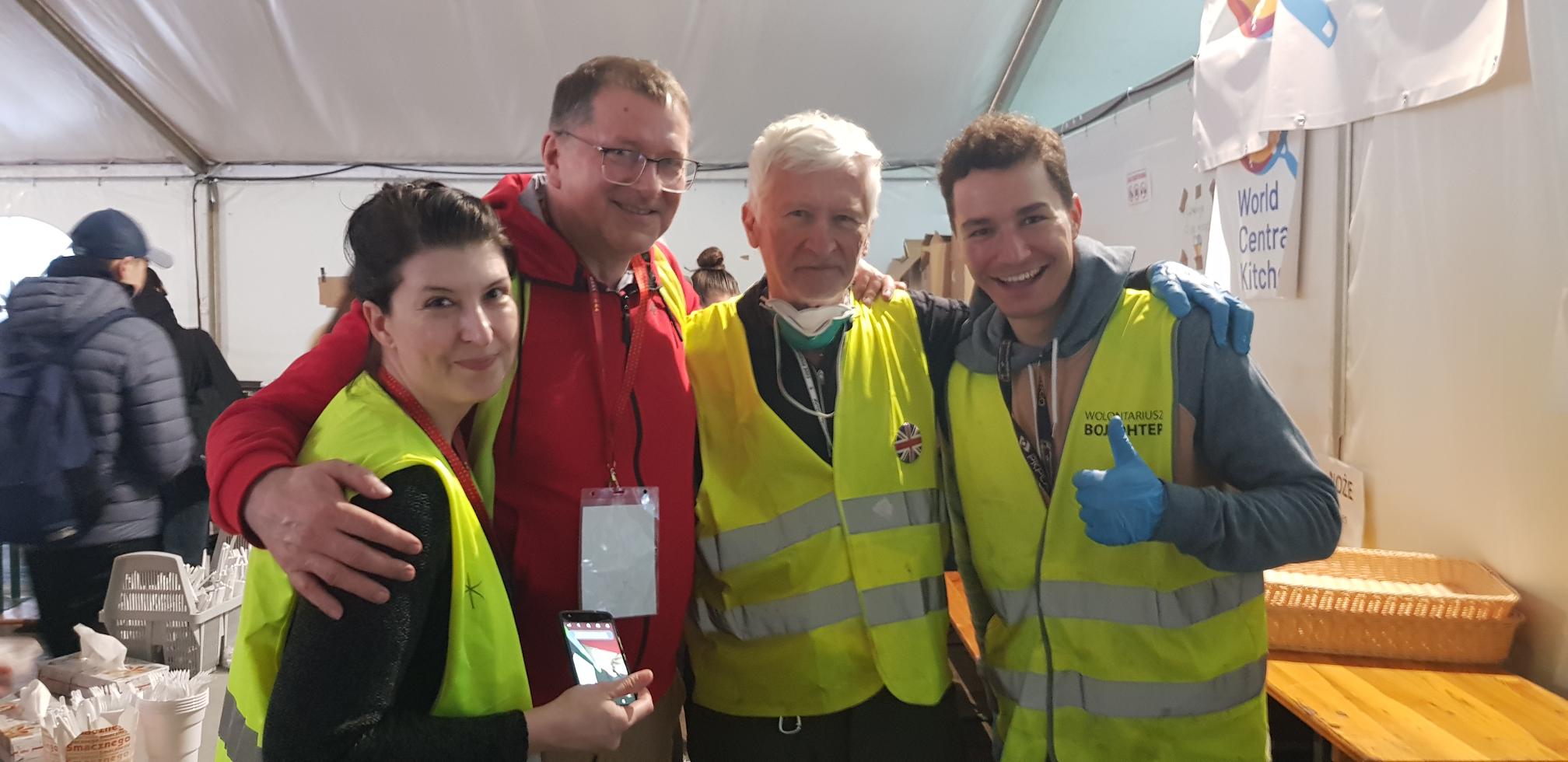On April 10, Ambassador Steve Mull received a message from his Polish friend, Aleksander Galos, who is a prominent attorney in Warsaw about “Sunday at the Train Station”. “Olek” as he’s known to his friends wanted to pass along the dramatic impact Americans are having in providing assistance to Ukrainian refugees in need on the ground in Poland.
Today, with my [son] Peter, we worked for six hours as volunteers in a tent at the Central Train Station in Warsaw. We served food, cleaned tables, took out the trash, etc. There were several dozen volunteers in our group. The majority were from abroad – Germany, France, Spain, and a lot from the USA. The working language was English. Our boss was a Black guy from Brooklyn. I met two retired guys from the USA in their 70s who came to Poland just to do this – you can see one of them on a film, Steven from Virginia. On the film, only one volunteer is from Poland. In total, the most on our shift were Americans.
We served a portion of food every 15-20 seconds. Over six hours, we served about 1000 people. We served more than 400 kilograms of food and water. Our customers were mostly women, average age about 40, young people, children, and older people. And that’s how it is here 24/7.





